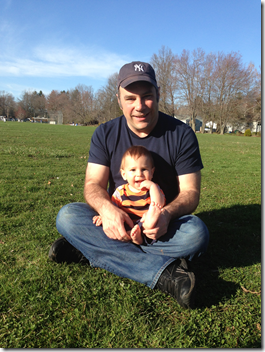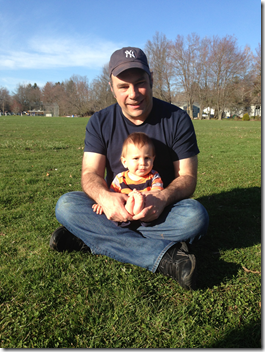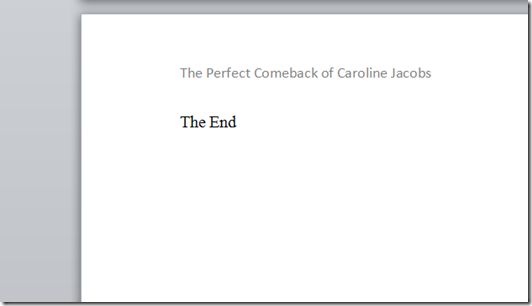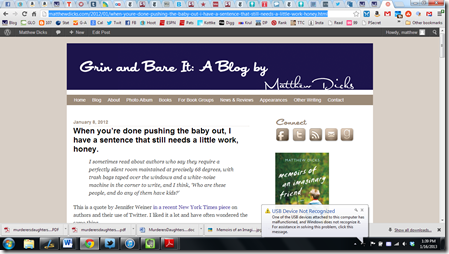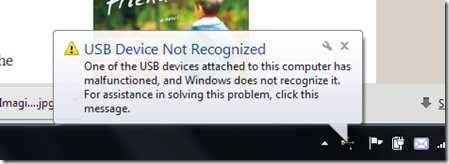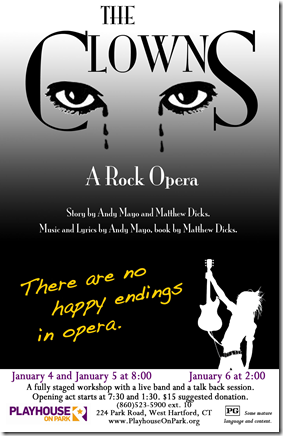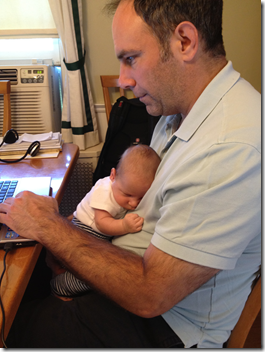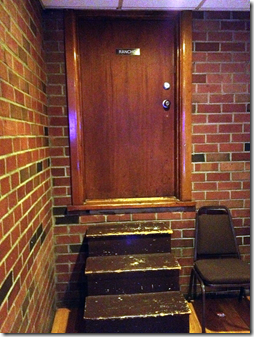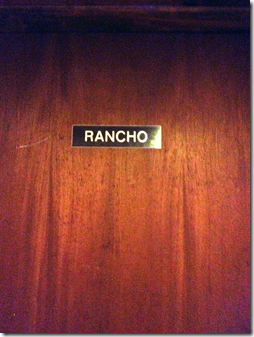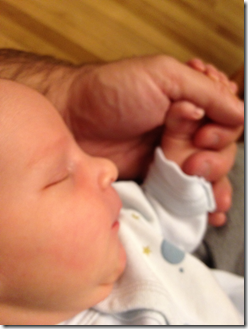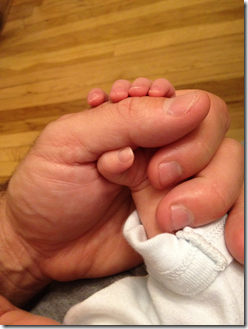Kid words for future characters
/I keep a list of all the invented and divergent words and phrases that my daughter uses in hopes of sprinkling these gems into future dialogue.
Two that I recently added to the list are pancholeen and last day.
Panchleen is the word that Clara uses for trampoline.
Last day is the phrase she uses for any day prior to today. Without a good understanding of time, any day before today is last day.
I love this phrase. I’ll be so sad when she stops using it.
Done.
/When my wife doesn’t like something I’ve written, she tilts her head, squints her eyes and rereads, as if doing so will make it look better.
I fear that look. I despise that look.
But it also forces me to do things like rewrite the last two chapters of my current manuscript, thus changing the ending completely.
For the better.
The book is done. The first draft, at least. And a good draft, too. It needs work, but it’s complete.
My fifth novel. The Perfect Comeback of Caroline Jacobs.
The birth of Something Missing: Aimee Mann's theory on creativity matches my own perfectly
/On a recent podcast, musician Aimee Mann said, “Being stuck in one place and bored out of your mind is the key to creativity.” I couldn’t agree more.
My writing career only began because I was bored out of my mind as well.
It was February of 2005. My wife and I were spending a week in Boca Raton, Florida with her then 87 year-old grandmother. Much of our trip consisted of breakfast and lunch at the club and dinner at a restaurant somewhere in town.
Halfway through the trip, Nana left us for the evening. She had a date with a man named Joe and an opera class at the local college, which left us home alone and without a car. After days without Internet access or cable television service and nothing left to read, I found myself in a desperate search for something to keep me busy.
The previous November, my then-fiancée and I were having dinner with our close friends, Charles and Justine. During the course of the meal, Justine mentioned that she had lost an earring earlier that day and was hoping to find it when they returned home. I asked Justine how she knew that the earring had been misplaced. “Perhaps some clever thief came to your house and stole just one earring, so that you wouldn’t suspect theft.”
The idea of a thief who only steals items that go unnoticed lodged itself in my mind, and when I arrived home later that night, I jotted down the idea on my ever-growing list of possible story ideas.
The idea was still stuck in my mind while pacing around Nana’s home three months later, but I had no story. Just the idea for a character. Nevertheless, boredom defeated my belief that I had to outline any story that I was going to write, so with nothing but an idea for a character, I started writing.
I wasn’t sure if it would be a short story or something longer, but by the time the trip was done, the first three chapters of the novel were complete and I was well on my way.
When I began the book, I had no idea where the story might take me,. I simply began connecting sentences together and waited to see what might happen. This is a method of writing that no one had told me about during my time at college. Despite attaining a degree in English with a creative writing concentration, my professors had always taught me to outline before writing. Create character sketches. Research. Plan.
I’ve since learned to embrace the unknown and allow the story to come to me. Stephen King calls this “unearthing the fossil,” though I wouldn’t hear this expression until the book was nearly finished. I’ve also learned that about half of all fiction writers write this way.
Ten years go, this would have sounded like nonsense to me, but now I believe it with all my heart. There were many moments in the writing of Something Missing when I literally did not know what would happen next until I wrote it, and the same has held true for my subsequent novels.
In fact, as I writing the final chapters of Something Missing, I still didn’t know what my main character’s ultimate fate would be. I was writing the section of a chapter in which much of the plot would be resolved when my wife called.
“I can’t talk. I’m about to find out what happens to Martin.”
“Really,” she said. “What happens?”
“I don’t know! I’m still writing it!”
If you are reading this chapter someday, remember that I experienced it just like a reader would: One word at a time.
Though many authors know exactly where their stories will ultimately go, I do not, and I’ve learned to trust this instinct. I start with character. I find a person who interests me, and then, in a vomit-provoking, disgustingly spiritual, earthy-crunchy way, I assume that the plot is already written in the character’s fate.
Once I’ve found the character, his or her fate is sealed. I just have to unearth it.
But it’s true. I’d been trying to start a novel for more than five years before beginning Something Missing, but each time, I thought that I needed to plan the story from beginning to end before starting to write. While many writers work this way, I have found that I am better off beginning with a glimmer of an idea and discovering the rest along the way. I leave the story to fate, and things have seemed to work out so far.
I like to tell this story because I worry that too many writers sit around, waiting for their one great idea to emerge, when that idea might already exist, waiting to be unearthed.
So if you’re waiting for the next great novel idea to reveal itself to you, why not pick up a pen and starting writing while you wait?
As for my, I’m eternally grateful that even at the age of 87, Nana was still driving, dating and taking classes. Like Aimee Mann, I needed to be stuck in one place and bored out of my mind for my creative process to finally reveal itself to me. Nana unwittingly provided me with just that when she left me at home that night.
She’s 92 today and little has changed. On Sunday night she was sitting in the audience at The Moth’s GrandSLAM, chatting with hipsters from Brooklyn while waiting to hear me tell my story.
I have friends in their thirties who tell me that they can’t stay up that late.
The Matthew Dicks Pre-Obituary Contest (including fabulous prizes for the winner)
/Slate recently named the obituary of Harry Weathersby Stamps as their current leader for obituary of the year. Excerpts from this incredible obituary (though you really should read the obituary in its entirety) include:
Harry Weathersby Stamps, ladies' man, foodie, natty dresser, and accomplished traveler, died on Saturday, March 9, 2013.
As a former government and sociology professor for Gulf Coast Community College, Harry was thoroughly interested in politics and religion and enjoyed watching politicians act like preachers and preachers act like politicians. He was fond of saying a phrase he coined 'I am not running for political office or trying to get married' when he was 'speaking the truth.' He also took pride in his service during the Korean conflict, serving the rank of corporal—just like Napolean, as he would say.
He despised phonies, his 1969 Volvo (which he also loved), know-it-all Yankees, Southerners who used the words 'veranda' and 'porte cochere' to put on airs, eating grape leaves, Law and Order (all franchises), cats, and Martha Stewart. In reverse order. He particularly hated Day Light Saving Time, which he referred to as The Devil's Time. It is not lost on his family that he died the very day that he would have had to spring his clock forward. This can only be viewed as his final protest.
While I have no intention of ever dying, I was also a Boy Scout for many years and believe in being prepared. After reading Stamps obituary, I decided that part of being prepared for the unlikelihood of death should be to have an obituary as unique and entertaining as his already written in the event of my improbable demise.
The idea of writing an obituary before the subject is deceased is nothing new. Newspapers often have obituaries prepared ahead of time, so why not have your own obituary ready as well? I’ve always felt bad for the dead person who never has the opportunity to hear the accolades expressed after his or her untimely death.
The same goes for the obituary. Harry Weathersby Stamps never had the opportunity to read this remarkable obituary before his death.
What a damn shame.
This is what makes Tom Sawyer one of my heroes. The boy faked his own death and attended his own funeral. Brilliant!
But writing my own obituary seems slightly uncouth. Self congratulatory. Possibly narcissistic.
At the very least, biased.
So what I’m proposing, dear reader, is that you take a stab at writing my obituary for me. I’m not looking for a standard obit but something that is unique, entertaining, memorable and possibly amusing.
A Harry Weathersby Stamps kind of obituary.
I’d like it to capture the essence of who I am (or who you think I am) while also remaining truthful and sincere.
Of course, there will be a prize for the obituary that I like the best. While I’m not in the position to offer any sizeable cash reward, I’ve attempted to assemble a prize package that will make this endeavor worth your time.
It includes:
- Signed copies of all three of my books plus a signed galley of my next book when it is available.
- Your name or a name of your choice (within reason) to be used in my next book as the name of a minor character.
- Publication of your obituary on this blog and possibly in a newspaper someday in the unlikely event that I die.
I’m also willing to negotiate this prize package, so if you have a suggestion for something else that I should offer, let me know.
Also, if you are in need of any biographical data for the completion of the obituary, just ask. The obituary will be judged on originality, entertainment value and its ability to capture the essence of who I am, but accuracy is important, too. That said, names and dates can always be added in later if necessary. I’m not as worried about you getting my birthday correct as I am about your ability to make this obituary one that people will enjoy and remember for a long time.
Good luck!
When do I write? In the cracks between my toddler’s poops and my wife’s contractions.
/Two years ago, I spoke at a nursing home about my most recent novel.
I take any gig that I can get.
In a sparsely furnished basement room, standing in front of a 78-inch television, I read a little bit from my book, told a few stories, described my writing process and watched as the smattering of men in the audience all nodded off almost simultaneously.
At the end of my talk, an elderly woman approached and told me that she had an “amazing story that will someday make a great book.”
“How old are you?” I asked.
“Eighty-seven,” the woman replied.
“Then shouldn’t you start writing your book today,” I asked. “You could be dead tomorrow.”
This remark earned me an angry glare from the woman and a punch in the arm from my wife, who was standing beside me, but I stand by my statement. That old lady needed to get writing immediately if she ever hoped to finish her book.
She’s probably dead today. More importantly, she’s almost certainly unpublished.
This was not the first time someone has spoken to me about their desire to write without any actual writing to show for it. These future literary giants, who I call someday-writers, are filled with excuses as to why they are not writing.
Some assure me that they are awaiting retirement, a sabbatical or their child’s graduation before beginning the great American novel.
Others blame their delay on location, claiming they can only apply pen to paper in a non-franchised, locally owned coffee shop while sipping organic cappuccino and listening to the soothing sounds of Nora Jones unplugged.
Still others assert that they can only write on a Macbook Air, a Moleskine journal or a yellow legal pad.
These are not writers. These are romantics captivated by the false trappings of an authorial career. They idealize the writing process because the one thing they know about writing is that it’s hard and therefore assume it requires the ideal conditions.
I write in the cracks of my life. The spaces between work and family. I can often be found sitting at the kitchen table, typing with one hand while balancing my eight month old son on my lap and keeping one eye on my four year old daughter, who is sitting on the toilet, straining to make a poop while watching Max and Ruby on the iPad. Though long, uninterrupted afternoons in idyllic pastoral settings would be an ideal way to write, this is unrealistic for most writers.
For so many of us, we write wherever and whenever we can.
Nothing epitomizes this reality better than the day my daughter was born.
My wife, Elysha, and I arrived at the hospital at midnight. Her water had broken but she was not yet dilated.
I still don’t know what dilated means, and please don’t tell me. The less I know about the lady bits, the better.
After being assigned our room, I was ordered to eat Jello in the lobby while my wife was given an epidural, and then she went to sleep for six hours. With pain medication onboard, Elysha slept soundly. I was provided with an arcane, back-breaking torture device upon which to sleep, so rather than suffering, I opened up the laptop and began writing.
Nurses came in and out of the room throughout the night to check on my wife, giving me odd looks and sidelong glances when they saw me sitting in the corner, pecking away, but Elysha didn’t mind a bit. In fact, during one of these checks, she awoke, turned to me and asked, “What are you working on?”
“Milo,” I said, referencing my manuscript.
“Good,” she said. “Keep working.”
I did.
Eventually it was time for Elysha to push. A nurse told me to grab a leg and refrain from passing out. I complied, but during the first hour of pushing, the contractions were spaced far apart and a monitor alerted us to when each contraction was coming. Rather than wasting precious time, I rolled back and forth across the room on a wheeled stool between contractions, from my pregnant, panting, ready-to-pop wife to my laptop and back.
The nurses didn’t appreciate this one bit.
But this is how writers write. We are either writing or waiting for that next moment to write. And these moments rarely happen at a handmade butcher block table in a fair trade coffee shop at the corner of Trendy and Hip Streets.
Writing happens in the mess of our lives, in the cracks between poops and contractions.
The majesty and utility of the Baby Mum Mum
/When I’m desperately trying to squeeze out a few more sentences of my manuscript and Charlie is demanding my attention, I can always depend on a Baby Mum Mum, a tasteless rice treat, to give me the the few more minute that I need to finish.
Charlie loves Baby Mum Mums.
Unfortunately, he’s so damn cute while eating his Baby Mum Mum that I often can’t focus on the manuscript.
Recent editorial comments
/In working on a short piece of nonfiction with my editor, I was recently offered the following comments:
“Much too self-effacing. People are going to think you’re Canadian.”
“Incredibly stiff. Not your voice at all.”
“Wiffle. Waffle. Adds nothing.”
I’ve always appreciated the direct approach.
My editor, who I adore, embraces it.
My son is not a USB device
/I do a lot of writing with my infant son on my lap.
Yesterday he was chewing on the cord that connects my phone to the laptop. Unbeknownst to me, he eventually worked his way up to the end of the cord and placed the connecter in his mouth.
I immediately received a warning message on the bottom right of my screen.
Here is a closer view of the warning.
While my son is not a USB device, I give my laptop credit for realizing that whatever was interacting with the cord was not normal.
Lessons and observations from a week of The Clowns.
/This evening we will meet to discuss the future of The Clowns, the rock opera that my co-writer and I have spent the last five years writing. With two weeks to reflect on the workshop process that brought The Clowns to the stage for the first time, I had some final thoughts:
1. When collaborating on a project, I strongly suggest that you find a partner who is considerably nicer than you and is willing to put forth 100% effort while gladly accepting 60% from you. It is an ideal situation.
2. When given the freedom and encouragement, actors are like writers without keyboards.
3. Similarly, directors are like editors without red pens. They, however, do not require the encouragement and simply assume the freedom.
4. Watching actors say lines that you wrote and become the characters that you envisioned while listening to the audience around you laugh and gasp and applaud is just as good as seeing your novel on a bookstore shelf.
5. I’ve acted before and thought this while doing so, but two weeks of rehearsals and performances confirmed it: Acting is a form of collaborative, non-competitive sport with much of the physicality of athletics and all of the pressure of a championship game on the line.
Author Jarrett Krosoczka wins over my students in less than 20 minutes. I’m STILL trying to win them over.
/
I played this video for my students last week as part of our Writer’s Workshop, and they were overwhelmed with inspiration.
Literally.
They were blown away by author and illustrator Jarrett' Krosoczka’s ability to overcome difficult childhood circumstances while remaining positive. They couldn’t stop talking about the degree to which he dedicated himself to his craft at such an early age. Some of them pulled notebooks from their desks and started writing the novels and children’s books the instant the video ended.
One of my students referred to Krosoczka as his newest hero, which I found mildly disconcerting considering he has yet to refer to me in those terms.
Whatever.
Another student said, “Mr. Dicks, you need to show us more stuff like this.”
I’d like to, but there simply aren’t that many Jarrett Krosoczkas in the world. But I assured my student that I’d keep my eyes open.
Is this a new and innovative way of writing a novel, or am I simply being stupid again?
/I’m slowly becoming obsessed with an idea that I stumbled upon during the weekend performances of our rock opera, The Clowns.
After workshopping the production for two weeks with the actors, director and my writing partner, the show has evolved in ways I could have never imagined.
Most surprising for me was the way in which the actors have informed my vision of the characters. In less than two weeks, these characters have become more compelling, fully realized beings, and much of this progress was the result of the talent and insight of the actors portraying them. From improved dialogue to newfound aspects to a character’s personality to invented backstory to something as simple as the way a character walks and moves, these skilled and thoughtful professionals have provided me with an enormous amount of material for future revisions.
In many ways, they have come to know the characters better than me, and I couldn’t be more grateful. I’ve stolen so much from each one of them already, and I hope to continue to do so as we move forward.
As a novelist, I suddenly find myself wishing that I could have professionals like these performing each of the scenes in my manuscript as I finish them. I fear that there is so much more that I could learn about my characters if I could involve actors in the writing process.
This is the idea that has consumed me for the last few days.
Maybe I should give this a try. If I choose the right book idea, with a small enough number of characters (my books tend to be sparsely populated already) and a relatively uncomplicated setting, it might be possible for me to work with a group of improvisational actors and a director to inform my writing process.
At the minimum, it would be something new, and even if it failed to inform my writing in the ways that I am envisioning, it couldn’t hurt the process. I often think the publishing industry should be looking for more ways to innovate our product. Perhaps this could be one of those ways,
Of course, I’d need enough money to keep professional actors on staff during the writing process, but maybe Kickstarter could help.
Would readers be willing to fund a project like this in return for a signed first edition of the novel (signed by the author and the actors) plus complete video footage of each of the scenes as performed by the actors involved?
Is there something else that I might be able to offer as part of a Kickstarter package that readers would enjoy? Maybe a copy of the initial draft of each chapter followed by the revised copy of the chapter after having watched the scene portrayed by the actors?
I would love your thoughts on this idea. I’ve been prone to falling in love with some unlikely, unreasonable, unfeasible ideas in the past, and if this is just another one of them, please let me know.
Save me from myself.
But if you think it has merit and have any ideas to add to it, please let me know. that as well.
I never know what I’m actually writing about
/Long after I finished writing my first novel, SOMETHING MISSING, I discovered, only after my wife and therapist pointed it out to me, that I had written a book about my battles with post traumatic stress disorder, my hatred toward my evil step-father and my longing for my absent father.
I didn’t know any of these things while actually writing the book. These revelations were only pointed out to me much later.
Upon finishing my second novel, UNEXPECTEDLY, MILO, I discovered that I had written a book about the challenges that I’ve faced throughout my life as a result of refusing to conform. Though readers might think me crazy, it turns out that the most noble character in that story (at least for me) is Louis the Porn Fiend, a character who my agent suggested I cut and who only appears in one chapter. Louis’s nobility derives from his willingness to remain true to himself, even though the world around him may be repulsed by this essential truth.
As Budo says in MEMOIRS OF AN IMAGINARY FRIEND, “You have to be the bravest person in the world to go out every day, being yourself, when no one likes who you are.”
In the process of writing MEMOIRS OF AN IMAGINARY FRIEND, I discovered that I was actually writing about my obsession with mortality and my near-constant existential fear as a result of two near death experiences and a robbery at gunpoint. In fact, an armed robbery takes place in the book, but while writing the scene, it never occurred to me that I might actually be writing about my own experience and the fear still surrounding it.
Books can be funny this way. You think you’re writing about one thing and you’re actually writing about something entirely different.
It turns out that playwriting is the same.
While watching last night’s performance of The Clowns, I wondered why Jake, the play’s protagonist/antagonist, appeals to me so much when so many audience members expressed dislike and even hatred toward the character following the previous show. His likability has been a question that I’ve been considering for quite a while, and the answer finally struck me like a load of bricks last night during the first act.
Jake is me when I was his age.
The Jake who I wrote is far cooler than I ever was, and the actor playing the role is even cooler than the character written on the page, but at his heart, Jake represents someone who I once was, and in that instant, I understood the character completely and knew that needed to be done to mitigate the loathing that audience members felt for him and develop him further.
This couldn’t have happened had not the actor, Richard Hollman, not fully inhabited the character to the degree he has. I don’t think I will ever think of Jake without thinking of Rich. There may be other actors who play the role of Jake someday, but in my mind, Jake will always be Rich, and Rich will always be Jake. It was only through his performance that I was able to truly see the character, and in many ways, see myself.
All this probably sounds a little hokey (and I agree), but I can’t adequately express how stunned I felt when this realization finally dawned upon me. Not only did the character of Jake become instantly clear to me like never before, but I suddenly understood myself in ways I had never even approached.
It was an honest-to-goodness moment of epiphany.
Once again, I find myself thinking that I am writing about one thing when in reality, I am writing about another.
I should stop being surprised, but I can’t. It’s so bizarre.
Writing is a strange gig. I often say that I get paid for making up stuff in my head, and while this may be true to some extent, it turns out that writing is far more complex and mysterious than it ever seems.
At least for me.
Opening night for The Clowns! And perhaps a new way of writing fiction?
/Opening night of our rock opera, The Clowns, was a huge success. Over the last eight days, the actors, musicians and director have taken our original vision and brought it do life, and in the process, the show has become so much more complete.
Most surprising for me has been the way in which the actors have informed my vision of the characters. In less than two weeks, each of them have used the script and score to develop their characters into more compelling, fully realized beings. From improved dialogue to newfound aspects to a character’s personality and backstory to something as simple as the way a character walks, the actors have provided me with an enormous amount of material for future revisions.
In many ways, they have come to know these characters better than me. I couldn’t be more grateful. I’ve stolen so much from each one of them and plan on doing so much more.
As a novelist, I suddenly find myself wishing that I could have professionals like these performing each of the scenes in my manuscript. I fear that there is so much more that I could learn about my characters if I could involve actors in the process.
Perhaps someday I might give this a try.
Of course, I’ll need enough money to keep professional actors on staff during the writing process, but there is always hoping.
Actually, maybe Kickstarter could help. Would readers be willing to fund a project like this in return for a signed first edition of the novel (signed by rhe author and the actors) plus complete video footage of each of the scenes as performed by the actors involved?
The more I think about it, the more interested I become.
Our second show kicks off tonight 8:00 PM tonight at The Playhouse on Park. If you’re local and would like to attend, please call the Playhouse on Park in advance. We may be sold out for the Saturday performance.
In the meantime, here is a sneak peek of the show. This was recorded a few days ago during one of our music rehearsals. The song is called Forever, Wrapped Up in a Day, written and composed by my writing partner, Andy Mayo.
Charity sucks. At least in this instance.
/There was once a device marketed to housewives that would charge anyone who wanted to ring the doorbell 10 cents as a mean of reducing the number of traveling salesmen knocking on their doors.
In order to ring the doorbell, a visitor had to deposit a dime in a slot right next to the bell. This would trigger the bell to ring. If the guest was a friend, the dime was returned upon entrance. However, if the visitor was a stranger, the money was retained by the device and was given to charity.
Obviously the ability for a person to knock on a door rather than ringing the bell mitigates the effectiveness of this device, but my real problem with it is the idea that the money collected was given to charity.
While I am not opposed to charitable giving, it seems to me that if you are forced to endure an unsolicited solicitation from a sleazy salesman, you should be able to profit from the time lost.
I encounter a similar issue when students in my class win writing contests and are awarded cash prizes. Oftentimes the parents of these fledgling wordsmiths want their child to donate their winnings to charity or to some school-related cause.
I’m always appalled at this notion.
I explain to parents that this is the worst possible thing to ask a child to do. In almost every case, it’s the first time in the child’s life that he or she has received monetary compensation for mental exertion and creative output.
Reinforce this incredible feeling by allowing your child to revel in the joy of cold, hard cash.
Better yet, expand upon the experience. Enhance the reinforcement.
Take your child to the most decadent candy store on the planet and allow him or her to spend every dime on jujubes and lollipops.
Allow your child to purchase the book that you thought was inappropriate for his or her age level.
Permit your child to purchase his or her first rated R movie ticket.
There will be plenty of opportunities in a child’s life to help those in need, and a charitable spirit is a quality that is well worth fostering in young people.
Just not immediately after a child has been paid for something he made up in his head. Don’t ruin the moment by forcing your child to give this money away to starving children. Not this time.
It’s no surprise that it took me three years to complete my first novel but less than a year to complete my subsequent books.
Once you get paid for your efforts, you want to be paid again and again.
The inexplicable is fertile ground for fiction.
/I saw this door in a Portuguese club on Saturday night.
It is set into a brick wall. It’s elevated about three feet off the floor. The top of the door extends all the way to the ceiling. It’s accessible only through a set of impermanent, wooden stairs. The plate on the door reads “Rancho.”
As a writer, I couldn’t take my eyes off this door.
Have you ever seen a better bit of inspiration for a novel?
Making his feelings abundantly clear
/My newborn son is in my lap, presumably happy as a clam while I tap away on my keyboard.
I’m making serious progress, able to type with two hands for once, feeling good about myself and this simultaneous parenting-writing scenario, when I look down and see this:
Apparently things weren’t going as well as I thought.






